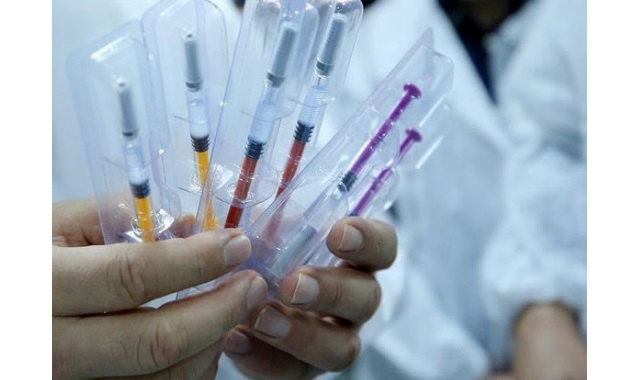
Researchers at Fudan University in Shanghai say they have developed a technology combining the speed of the rapid antigen test with the accuracy of PCR testing.
| THE INDEPENDENT | Chinese scientists say they have developed a COVID-19 test that can process results as accurately as the polymerase chain reaction (PCR) tests in less than four minutes.
The new technology uses a device that can detect the presence of the virus’ genetic material in the form of electric signals, said the authors of the study. They said the test was capable of finding small traces of the virus in the sputum of an infected individual.
“(The tool) may be advantageous in that it offers rapid detection of SARS-CoV-2 nucleic acids, easy operation, high sensitivity and specificity, and portability,” the authors said, referring to the coronavirus that causes COVID-19.
PCR tests are the most accurate on the market, but must be processed in a lab, which so far takes a few hours at minimum. When labs are overwhelmed by local surges in infection, processing can last days. Quicker, 15-minute rapid antigen tests are less reliable than the PCR alternative.
Recently, several governments have also opted to use the more convenient, at-home rapid antigen test kits, which give results in about 15 minutes. However, these tend to be less accurate than PCR tests, as they can miss detection in samples with lower viral loads.
“Assays for nucleic acid testing that are simple, rapid, and ultraprecise would contribute to slowing down the fast spread of SARS-CoV-2,” the authors of Chinese study wrote, adding their device would help “on-site and point-of-care testing in airports, clinics, local emergency departments, and even at home.”
Researchers at Fudan University collected nasal samples from 33 PCR-positive COVID-19 patients, 23 PCR-negative patients, six influenza-positive patients and 25 healthy volunteers. The test accurately processed all cases without error in under four minutes, according to a peer-reviewed study published Feb.07 in the journal Nature Biomedical Engineering.
PCR tests are more precise than antigen tests because they are more sensitive. They are considered the gold standard in diagnosing COVID-19, as recognized by the World Health Organisation and health authorities around the globe. Antigen tests require a higher concentration of the virus than PCR tests to show a positive result. This means antigen tests are more likely to show a false negative.
Antigen tests seek pieces of virus-infected proteins, while PCR tests search for viral genetic material like nucleic acids and RNA.
Until now, no technology has been created to properly detect COVID-infected nucleic acids and RNA without using extraction and amplification methods, for which you need a lab environment.
The Fudan University research was conducted on a small sample, said Andrew Ching, a professor of economics jointly appointed to the Johns Hopkins Department of Economics and the Bloomberg School of Public Health.
If the 100% accuracy rate were to hold up in a larger test sample, Ching said, “it could be a game changer.”
However, he said, if the accuracy rate doesn’t hold up at a larger scale and becomes similar to that of the antigen test, it won’t make a difference.
May allow on-site testing
Ching said that because the structure of China’s government places more authority toward the top, if the test is able to be produced at a large scale, he wouldn’t be surprised to see manufacturers coming out with versions by the summer.
“China tends to be more open to experimental methods,” he said, allowing approval processes to move more quickly than they would in Europe or the U.S.
The test developed at Fudan University uses a hypersensitive electromechanical biosensor to detect nucleic acids previously difficult to identify due to their low concentration in test samples.
Researchers said the development of portable tests featuring such technology could enable on-site testing at airports, clinics, emergency departments and at home. They added it could also be used for the quick diagnosis of other types of diseases.
There are countless brands of COVID-19 rapid at-home tests currently on the market, which vary in accuracy.
****
 The Independent Uganda: You get the Truth we Pay the Price
The Independent Uganda: You get the Truth we Pay the Price


